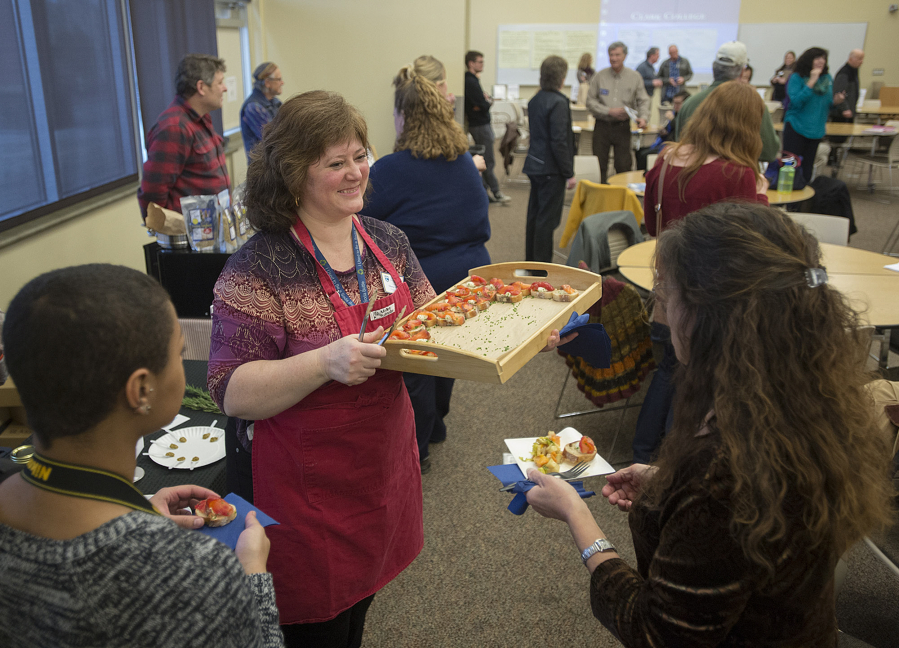Clark County residents are hungry for a healthy and thriving local food system.
That was the message at Growing our Future, a food summit hosted by Clark College on Friday. The event, organized by the Clark County Food System Council and Slow Food Southwest Washington, brought together business owners, farmers, policy-makers, scientists and chefs to discuss Clark County’s agricultural future.
“We have some of the richest resources, and we have to have the county and the land-use system that supports and protects that,” said April Thatcher, founder of Ridgefield certified organic farm April Joy Farms.
Between a series of workshops from local food experts, attendees milled around the Clark College Columbia Tech Center campus, snacking on squash soup with toasted coconut, beet cake and a hash made with local vegetables.
Shawn Morrill, chair of the Clark County Food System Council, was pleasantly surprised by the size and enthusiasm of the crowd. There were many unfamiliar faces, he said, signaling growing interest in the topic locally.
“I think people, through education and media and various sources, are becoming aware of food,” Morrill said.
While Portland has long been a bastion for locavores seeking farm-to-table restaurants and locally sourced markets, Clark County has been slower to catch on. But the organizations involved with Friday’s event are looking to change that, hoping Friday’s conversations will drive policy and business to support local food industries.
“I think you see people talking, and that was really what we wanted to do,” said Cathy Sherick, associate director of instructional programming and innovation at Clark College. Sherick helped coordinate the summit. “We wanted to provide a forum as a community.”
Tim Cook, Clark College’s vice president for instruction, said the college is in the early phases of developing an agronomy program dedicated to the science and technology behind farming and food production. The college is looking at its new campus at Boschma Farms in Ridgefield as a possible hub for such a program.
Friday’s food summit was the first step in breaking barriers among local experts to discover what that program could mean for Clark County’s future, he said.
“We’re exploring what that might look like — looking at farmers, but also to teach about sustainability, the environment,” Cook said. “We’re kind of trying to wrap all that around.”
After listening in on workshops, Battle Ground City Manager Jeff Swanson saw opportunities for growth and industry in his city. Swanson pointed to swaths of undeveloped light industrial land in Battle Ground that could be used for a food hub, a central location connecting food processors and farmers.
“I think, from Battle Ground’s perspective, we’re centrally located to all this production,” he said. “So we could be an ideal hub for all this.”




